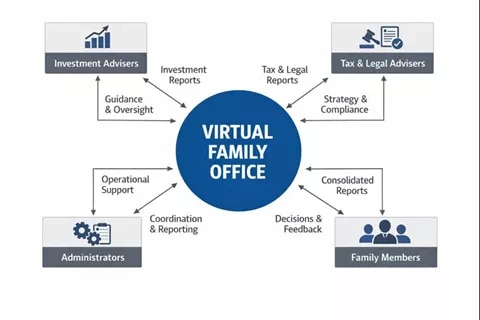
Singapore's talent market has undergone a fundamental transformation that many employers are still struggling to understand. With 88% of Gen Z professionals now preferring hybrid work arrangements over daily office commutes, the traditional five-day physical office model has become a major liability in recruitment and retention. This represents a permanent shift in how employees evaluate potential employers and make career decisions.
The implications for Singapore businesses are profound and immediate. When companies want to attract and keep top talent in today's competitive market, offering flexible work solutions and hybrid work policies has stopped being a nice extra benefit and has become something they absolutely need to offer. Meanwhile, companies that insist on keeping traditional office requirements are finding themselves losing their best candidates to competitors who understand what remote workers actually want and can create a positive employee experience.
What's Really Happening in Singapore's Job Market
Singapore's talent pool has reached a point where finding people has become genuinely difficult for most employers. According to KPMG's Singapore Employment Outlook 2025, businesses are struggling with serious skills gaps and cannot find the right people for specialised roles, particularly in technology and finance sectors. When talent becomes this scarce, the ability to offer greater autonomy shifts power to job seekers who can now afford to be choosy about their work environment.
The government has recognised this shift through new regulations supporting employee well being. The Tripartite Guidelines on Flexible Work Arrangement Requests, effective December 2024, require companies to formally consider and respond to employee requests for remote work options. Singapore has positioned itself as a leader among Asian markets in promoting the hybrid workforce model, which means companies without flexibility are already falling behind market standards.
Why Traditional Office Models Are Failing
The traditional requirement for in office workers to be present five days a week is actively hurting companies' ability to hire good people. Having a fixed physical office location, even in a prestigious area, means excluding talented candidates from different parts of Singapore.
That impressive CBD office space loses its appeal when potential employees calculate they'll spend three hours every day commuting, destroying any chance of better work life balance.
The daily commute has become a major factor in job decisions, particularly for younger workers who value their personal wellbeing highly. Gen Z professionals are increasingly turning down otherwise attractive job offers simply because the commute would prevent them from pursuing their side hustles or achieving work life balance,. When employers insist on full-time office attendance without performance monitoring that actually measures productivity, they're sending a message that they care more about control than results.
The real costs go far beyond missing out on good candidates. Companies with rigid office policies experience higher turnover as employees leave for organizations adopting hybrid work approaches, which means constantly spending money on recruitment and training. This creates a damaging cycle where businesses are always trying to replace staff instead of building stable teams with strong support systems, while losing valuable knowledge when good people leave.
How the Hybrid Model Gives Companies an Edge
Higher Employee Welfare...
Companies that have embraced the hybrid work model and flexible work model are discovering major advantages in attracting and keeping talent. The ability to offer genuine workplace flexibility through a hybrid work environment has become such a powerful differentiator that many professionals won't even interview with companies that don't offer hybrid work schedules, regardless of salary or other benefits.
The benefits for retention deliver higher job satisfaction rates. Employees who can work remotely part of the time consistently report better employee engagement and improved well being. When people can organise their hybrid work schedule around personal responsibilities, they develop stronger loyalty and are far less likely to leave. This positive employee experience translates directly into business success.
...at a Lower Cost
From a financial perspective, the hybrid workplace also delivers significant cost savings. Companies can reduce real estate costs by adjusting office space based on actual needs rather than maintaining fully remote or traditional setups. Digital transformation enables collaboration tools like Microsoft Teams to connect remote workers with in office staff seamlessly, creating an effective work arrangement that reduces overhead.
The productivity benefits of hybrid work success are clear. When employees spend less time commuting, they arrive with more energy for in person collaboration when it matters. Giving people the choice between remote location work and office time means they can optimise their environment for different work processes.
Making Hybrid Workforce Management Successful
The key to hybrid workforce management is establishing clear expectations from the start. Companies need to define which roles require on site presence, how many days people should be in office, and where flexibility exists. Being transparent about the hybrid work environment during recruitment helps attract candidates who align with your specific hybrid model approach.
Understanding where your employees actually live can transform your long term strategy. If your team is distributed across Singapore, forcing everyone to one location creates unnecessary challenges. Project management tools and the right technology enable team communication across multiple locations, allowing employees to work closer to home while maintaining team cohesion.
The Future of Work in Singapore
In Singapore's intensely competitive talent market, adopting hybrid work and flexible work arrangements has moved from being optional to becoming a top priority for attracting and retaining employees. Companies that embrace this reality are staying ahead by building stronger teams, reducing costs, and creating resilient organisations. Those that resist find themselves unable to compete for talent across different time zones and work preferences.
The path forward requires taking an honest look at your current work processes and asking whether they're helping or hurting your ability to hire and keep good people. For companies ready to compete effectively, exploring solutions like Servcorp represents a logical next step in digital transformation and workplace evolution.
Also read:
The Best Side Hustles for Flexible Workspace Solutions
Frequently Asked Questions






